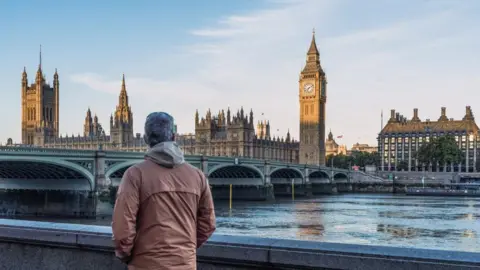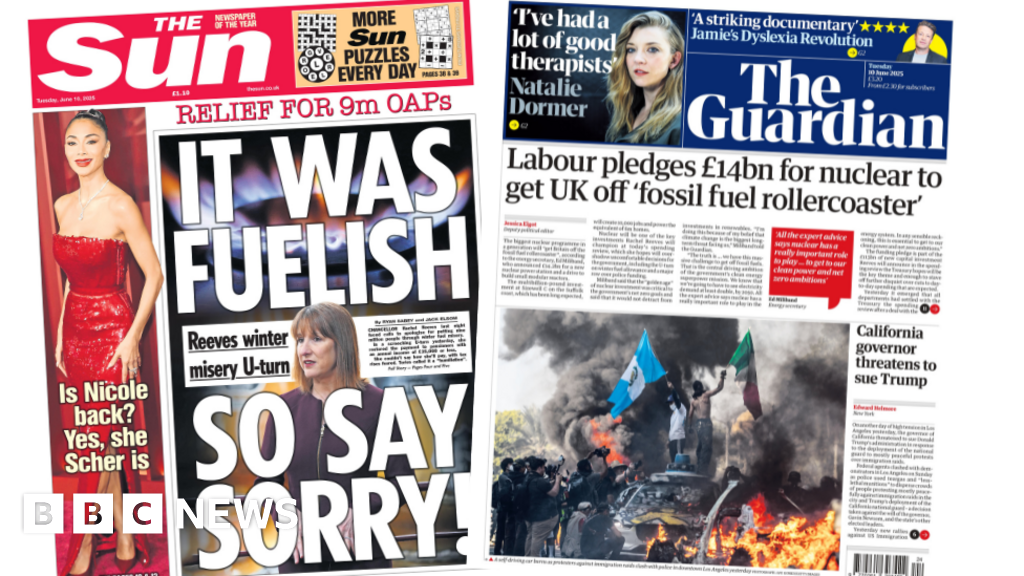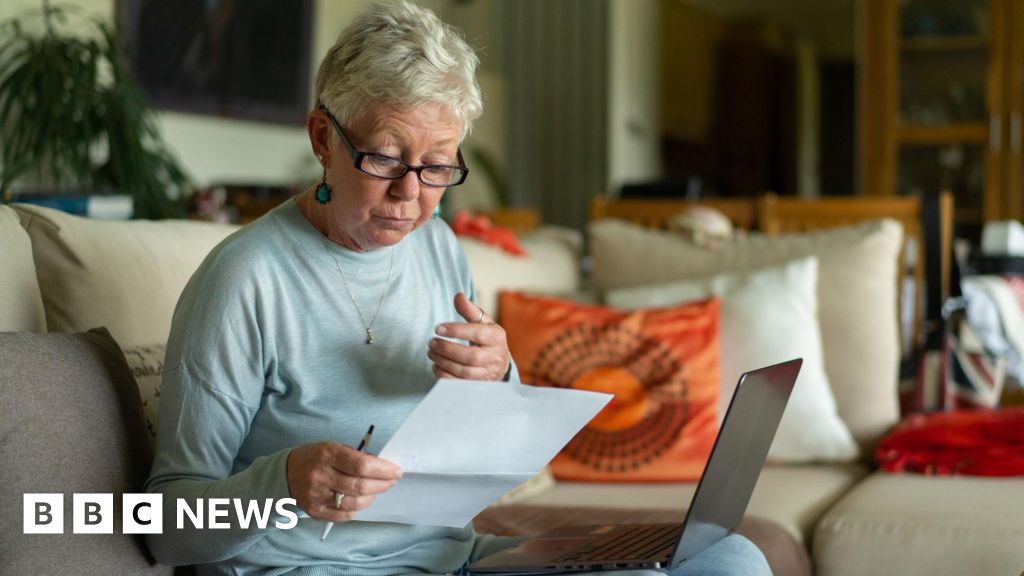Faarea Masud
Business reporter, BBC News

 Getty Images
Getty Images
The government borrowed more than expected in the year to March due to increased spending on pay and benefits, according to official figures.
Borrowing, the difference between spending and income from taxes, was £151.9bn in the year to March, up £20.7bn from the year before.
The amount borrowed was much higher than the £137.3bn predicted by the UK's official forecaster.
The figures come as Chancellor Rachel Reeves is set to attend the annual meetings of the IMF and World Bank to meet fellow finance ministers and push for a US trade deal.
The UK is one of many countries to be hit with tariffs on goods entering the US, with President Donald Trump looking to upend the long-established order of global trade in a bid to boost American manufacturing and jobs.
The introduction of tariffs, which are taxes imposed by a country on imports from abroad, can be a barrier to trade and have led in part to the IMF to downgrade the UK's economic growth forecast from 1.6% to 1.1% for 2025.
Steep increases in borrowing costs and inflation rising are also set to hit UK growth, the IMF said.
The government has made growing the economy its top priority in its effort to improve living standards, but growth has remained sluggish with businesses being hit by higher taxes and households facing rising bills.
Grant Fitzner, chief economist at the ONS, said despite the government receiving a "substantial boost in income" from taxation, "expenditure rose by more, largely due to inflation-related costs, including higher pay and benefit increases".
He added at the end of the financial year, debt remained "close to the annual value of the output of the economy, at levels last seen in the early 1960s".


The ONS said that in March alone, borrowing was £16.4bn, which marked the third-highest March borrowing since monthly records began in 1993.
The debt interest paid by the government increased to by £1.3bn to £4.3bn last month.
Higher borrowing has led to some economists to suggest spending cuts and tax rises could be on the way, if the chancellor wants to stick to her self-imposed borrowing rules.
"Reeves may not be too far away from having to raise money again in the Autumn Budget, by cutting spending and/or raising taxes, to meet her fiscal rules," said Ruth Gregory, deputy chief UK economist, at Capital Economics.
Darren Jones, chief secretary to the Treasury, said the government would "never play fast and loose with the public finances" and reiterated that the rules on borrowing were "non-negotiable".
"That's why our fiscal rules are non-negotiable and why we are going through every penny of taxpayer money spent, line by line, for the first time in 17 years to tear out waste," he added.
Shadow chancellor Mel Stride called the figures "alarming, but not surprising", adding that they "lay bare the price the British people are paying for Rachel Reeves' choices".



 1 month ago
62
1 month ago
62

















































